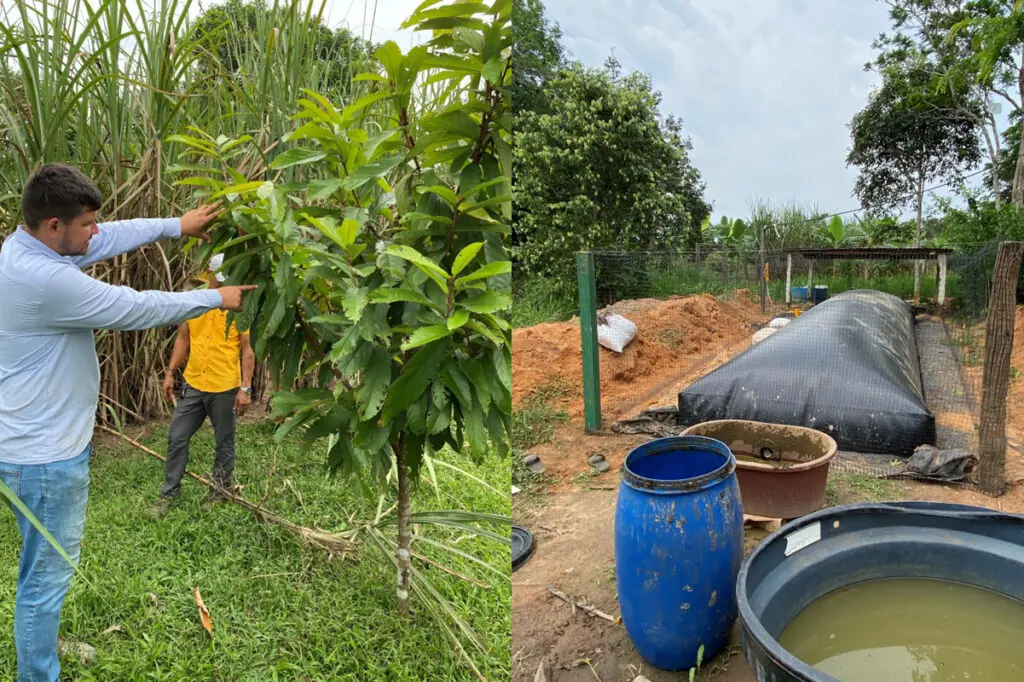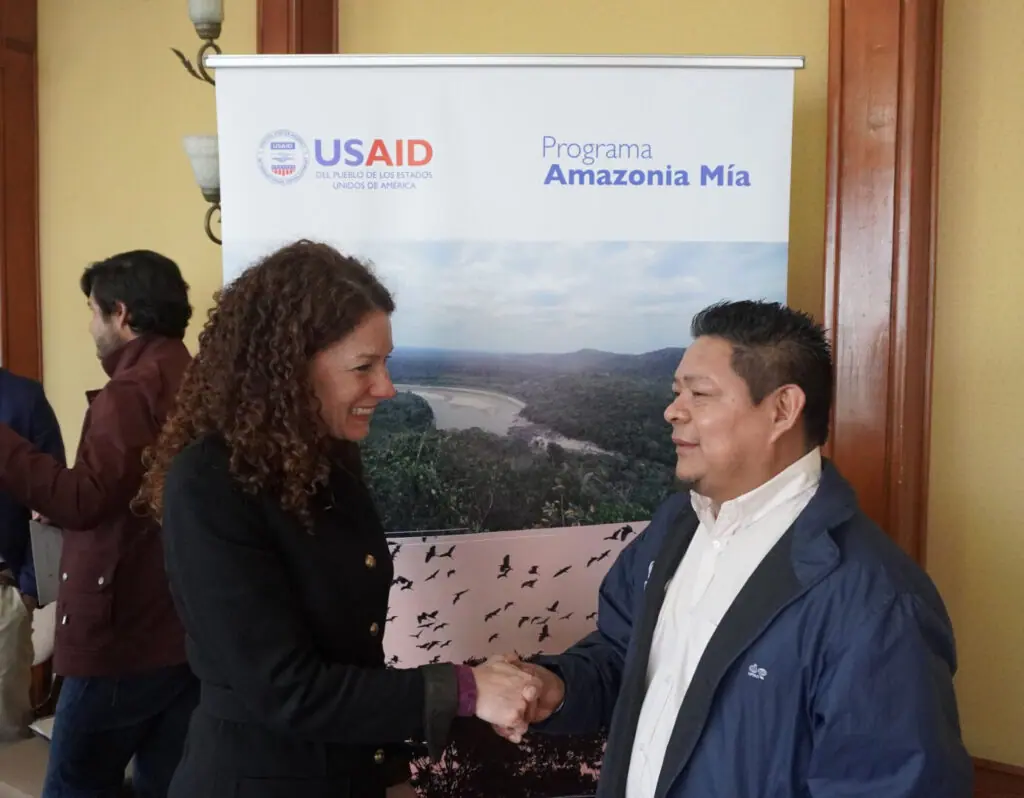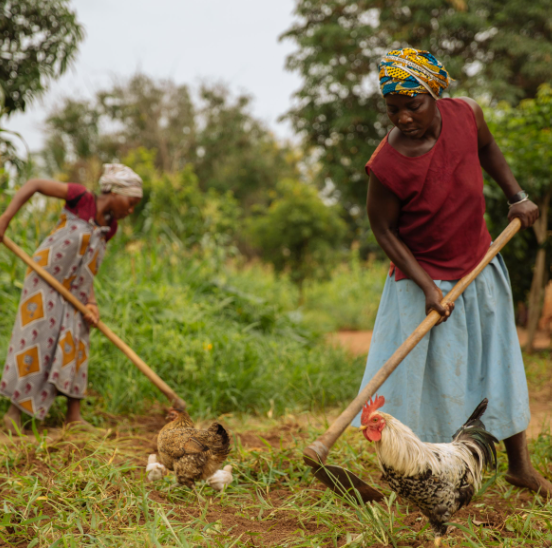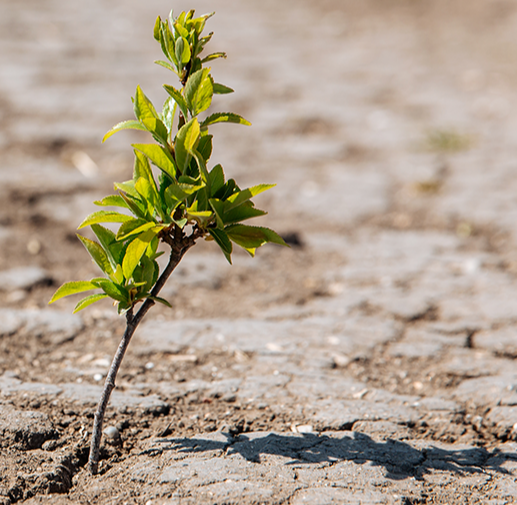By Alasdair Shott
With deforestation rising and greenhouse gases at critical levels, the need to promote and strengthen more sustainable livelihoods in the Colombian Amazon is greater than ever.
Deforestation in the Colombian Amazon has increased in recent years, with illicit economic activities and unsustainable agricultural practices damaging the natural environment and threatening biodiversity. The COVID-19 pandemic exacerbated things further, with the isolation of vulnerable indigenous communities and reduced access to markets providing a backdrop for increased land grabbing and environmental crime. As deforestation rises, the proportion of greenhouse gases in our atmosphere is at critical levels. As such, the need to promote and strengthen more sustainable livelihoods as alternatives to deforestation-heavy industry in the region is greater than ever.
Locally led initiatives, such as the ComGuaviare cooperative, which both protect and take advantage of the substantial natural wealth of the Colombian Amazon, provide a reason to be more optimistic. The cooperative is made up of 160 families and is led by Víctor, who has a passion for sustainable methods and protecting the rich biodiversity of his homeland. With Víctor at its helm, the cooperative has pioneered the use of sustainable fuels and is using manure from their small cattle holding to create biogas for cooking. Eco-friendly fertiliser is produced as a by-product of the biogas to enhance the growth of a range of sustainable forest crops, including cacao, casava and moriche. Víctor is also bee-farming to make honey, a potentially lucrative form of diversification. Through this sustainable, circular economy, the forest is conserved, and wildlife can continue to thrive. Plus, just as importantly, the greatest economic value of the forested land can be unlocked for the benefit of the local community.

Left-hand image: Víctor showing representatives from Chemonics some of the ComGuaviare crops, which have been grown using sustainable agroforestry methods. Right-hand image: The ComGuaviare biogas facility, which is providing cooking gas and sustainable fertiliser for the cooperative
The Chemonics-implemented USAID Amazonía Mía (Amazon Alive) programme is currently working with the ComGuaviare cooperative to promote sustainable agroforestry methods and further commercialise their green crops. The programme is one key example of a donor-funded initiative that is reducing deforestation and biodiversity loss while simultaneously supporting sustainable economic development in the Amazon region. Amazonía Mía focuses on the Guaviare, Caquetá, Meta, and Putumayo regions, working to improve the effectiveness of the government’s response to environmental crime and promoting environmentally sustainable economic development. In addition, it seeks to improve conservation practices to protect the biological richness of Colombia’s Amazon, motivating local residents and producers to reduce threats to biodiversity through straightforward changes to the way they work.
Víctor is proud of what he has achieved with ComGuaviare and is hopeful that it can serve as a model for other sustainable initiatives in the region, while encouraging local people to feel more connected to the land. He provided the following thoughts on what the project has meant to him: “Four years ago, we embarked on a mission to restore our precious forests. Witnessing the impressive revival of these once-barren lands is truly inspiring. It’s as if the forest carries a memory.”
Many challenges remain however, particularly in terms of gaining access to regional, national, and international markets for sustainable Amazon products. For example, the ComGuaviare cooperative does not have the required certifications for some of their goods, which limits their access to markets. Unfortunately, the current process for certification can be prohibitively expensive and access to finance is difficult for many producers in the Amazon region. Small scale producers like Víctor at ComGuaviare also face international and regional competition, including from larger manufacturers of Amazon products in Brazil. Therefore, local farmers and business owners, including those from indigenous communities, need technical assistance, innovative financing support (potentially through carbon or biodiversity credit schemes), and better connections with consumers and the private sector to be able to maximise the benefits of their sustainable crops.
To confront these challenges, dialogue between different actors, including government, indigenous communities, and international donors is essential. At an event in Bogotá, Chemonics convened indigenous representatives from OPIAC (Organización Nacional de los Pueblos Indígenas de la Amazonia Colombiana), Colombia’s Ministry of Environment and Sustainable Development, and international donors, including the UK, Germany, and Norway to discuss possible solutions. Participants explored how we can support the Government of Colombia to coordinate the development of sustainable value chains for Amazonian products, implement policies to protect the environment and improve forest management, and work together to maximise the impact of future donor-funded initiatives.

An indigenous representative from OPIAC (Organización Nacional de los Pueblos Indígenas de la Amazonia Colombiana) and Louise Quy (Managing Director, Chemonics UK) at a stakeholder event convened by Chemonics in Bogotá.
The need for indigenous communities to be more engaged with local government officials and closer to the development of policy was also raised – as currently many communities, particularly in the Amazon’s deforestation hotspots, are cut off from political and development processes. To tackle this, government and donor funded interventions need to be co-designed and administered by local communities to increase local ownership, identify priority needs, and develop skills. If empowering local communities is one key to success, another is linking the private sector and established markets with small-scale Amazon producers. As only through these connections can we achieve the sustainable economic activity that will ensure food security and prosperity in the Amazon, while protecting the forests and their biodiversity, and helping to mitigate the potentially devastating effects of climate change.
Posts on the blog represent the views of the authors and do not necessarily represent the views of Chemonics.

